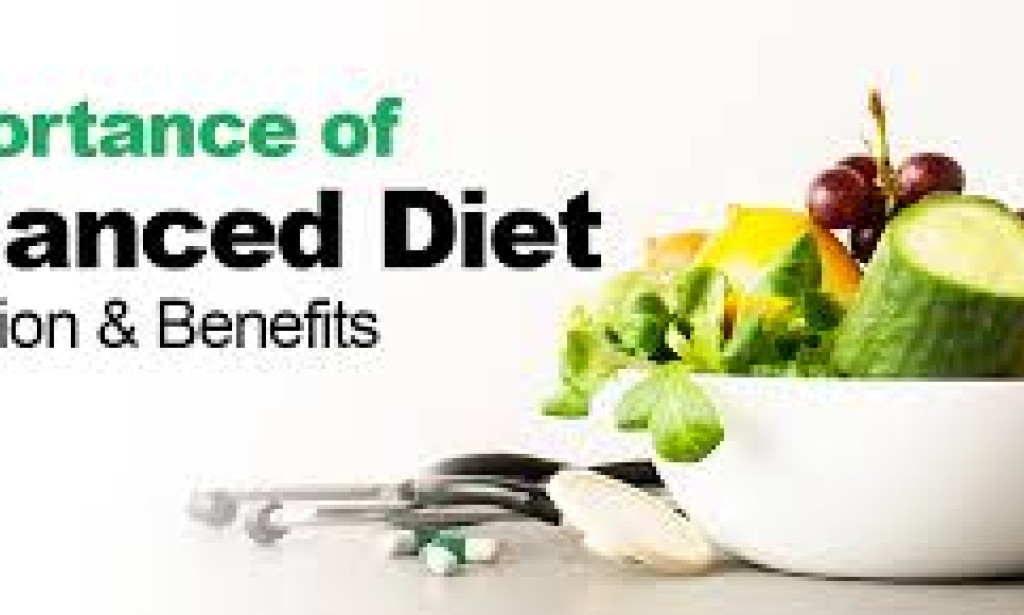Table of Contents
- Introduction to a Balanced Diet
- The Importance of a Balanced Diet
- Key Components of a Balanced Diet
- How to Achieve a Balanced Diet
- Common Myths About Balanced Diets
- Benefits of a Balanced Diet
- Conclusion
1. Introduction to a Balanced Diet
A balanced diet is the foundation of good health, providing the body with the necessary nutrients to function optimally. Nutrients include carbohydrates, proteins, fats, vitamins, and minerals, each of which plays a vital role in keeping the body healthy. The goal of a balanced diet is not to focus on a single nutrient but to achieve an appropriate proportion of all these nutrients. Consuming a variety of foods ensures that you get a wide range of vitamins and minerals, which are crucial for maintaining energy levels, supporting immunity, and promoting proper bodily functions. Without a balanced diet, the risk of developing chronic conditions such as obesity, diabetes, and heart disease increases.
2. The Importance of a Balanced Diet
The importance of a balanced diet cannot be overstated. A healthy, well-rounded diet helps regulate body weight, boosts metabolism, and reduces the risk of chronic diseases. It also contributes to emotional well-being and mental clarity. Nutrients from a variety of foods support the body’s immune system, enabling it to fight off infections and recover from illnesses. Furthermore, a balanced diet improves physical performance, whether in everyday activities or in sports. In the long term, it is the key to living a vibrant and healthy life, reducing the likelihood of developing lifestyle-related diseases.
A lack of balance, such as an over-reliance on sugary foods or processed snacks, can lead to nutrient deficiencies, poor digestion, and fatigue. On the other hand, by maintaining a proper diet, individuals are more likely to live a longer, healthier life, with greater energy levels and mental focus.
3. Key Components of a Balanced Diet
A balanced diet includes the following core components:
-
Carbohydrates: The body’s main source of energy, carbohydrates can be found in foods like grains, legumes, fruits, and vegetables. Whole grains like brown rice, oats, and quinoa are excellent choices because they provide fiber and additional nutrients that support digestion and overall health.
-
Proteins: Essential for muscle growth and tissue repair, proteins should come from both animal and plant-based sources. Lean meats, poultry, fish, eggs, beans, and legumes are some of the top protein-rich foods. Protein helps with hormone production and is an important building block for the body's cells.
-
Fats: While fats often get a bad reputation, they are essential for energy, cell function, and the absorption of fat-soluble vitamins (A, D, E, and K). Healthy fats, such as those found in nuts, seeds, avocados, and fatty fish like salmon, provide the body with long-lasting energy and support heart health.
-
Vitamins and Minerals: These are critical for various bodily functions, including immune function, energy production, and bone health. Leafy greens, citrus fruits, and dairy products are rich in vitamins like A, C, and D, while foods like spinach, broccoli, and nuts provide vital minerals such as calcium, iron, and magnesium.
-
Water: Hydration is just as important as food, as water supports digestion, nutrient absorption, and the body’s temperature regulation. It is vital to drink enough water daily to keep the body functioning properly.

4. How to Achieve a Balanced Diet
Achieving a balanced diet requires thoughtful planning and mindful eating. Start by including a variety of fruits and vegetables in your meals, aiming to fill half your plate with these nutritious foods. Incorporate whole grains into your diet, such as whole-wheat bread, brown rice, and oatmeal. Add healthy proteins like lean meats, fish, eggs, or plant-based proteins such as tofu, lentils, and quinoa.
Portion control is another crucial aspect of maintaining a balanced diet. It’s easy to overeat even healthy foods, so practicing portion control helps regulate calorie intake and prevent weight gain. Consider following the guidelines of the MyPlate model, which recommends dividing your plate into sections for fruits, vegetables, grains, protein, and dairy. This visual guide can help you ensure you’re eating a diverse range of foods in the right quantities.
Meal planning is also a great way to stick to a balanced diet. By preparing meals ahead of time, you ensure you have healthy options readily available, reducing the temptation to reach for processed snacks or fast food.

5. Common Myths About Balanced Diets
There are many misconceptions about what constitutes a balanced diet. One common myth is that carbohydrates should be completely eliminated from the diet to lose weight. In fact, healthy carbohydrates like whole grains, fruits, and vegetables are an important part of a balanced diet and should not be avoided. Another myth is that fats should be entirely cut out. While trans fats and saturated fats should be limited, healthy fats, such as those found in olive oil and avocados, are vital for heart health and overall well-being.
Another misconception is that protein needs to come solely from animal sources. Plant-based proteins are just as effective in meeting nutritional needs, and many people opt for a plant-based diet for health or ethical reasons. Ensuring a balanced intake of protein from a variety of sources is key to supporting muscle health and body function.
6. Benefits of a Balanced Diet
A balanced diet offers numerous benefits, both physically and mentally. These include:
-
Better Physical Health: A balanced diet supports healthy growth, immune function, bone density, and muscle strength. It reduces the risk of chronic conditions like obesity, diabetes, and heart disease.
-
Improved Mental Health: Nutrient-dense foods are known to support cognitive function, enhance mood, and help regulate stress. Omega-3 fatty acids, found in fish and flaxseeds, for instance, are linked to improved mental clarity and mood stabilization.
-
Increased Energy Levels: By providing a steady source of energy from healthy carbohydrates, proteins, and fats, a balanced diet helps avoid energy crashes, keeping you active throughout the day.
-
Longer Life Expectancy: By reducing the risk of chronic diseases and promoting overall health, individuals who maintain a balanced diet tend to live longer and have a better quality of life.
7. Conclusion
In conclusion, a balanced diet is key to maintaining optimal health and well-being. By ensuring you consume a variety of foods from all food groups in appropriate portions, you can boost your energy levels, support your immune system, and lower the risk of serious health conditions. The key to a balanced diet is variety, moderation, and mindful eating. By adopting these principles into your daily routine, you can enjoy the long-term benefits of a healthier lifestyle.


You must be logged in to post a comment.